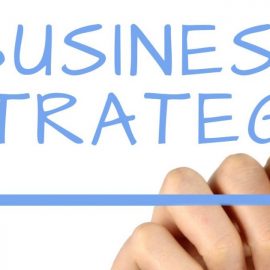
What makes a COO candidate the right cultural fit for your company? How can you effectively evaluate potential executives beyond their resumes?
Finding the perfect Chief Operating Officer requires a strategic approach to interviewing and evaluation. In The Second in Command, Cameron Herold outlines a comprehensive three-round COO interview process that surfaces candidates who align with your company’s values and possess the necessary skills.
Keep reading to discover the essential steps for conducting effective COO interviews that will lead you to your ideal second-in-command.
COO Interview: Round 1
Once you find a few candidates that might fit the bill, Herold says you must interview them yourself to ensure they’re the right fit. In the first round of COO interviews, determine whether each candidate’s values and behaviors align with your personality and your desired company culture. If they don’t align on this level, there’s no point wasting your time with further interviews, as these aspects can’t be taught.
(Shortform note: Determining someone’s true personality and behaviors can be difficult, especially when they know what you’re looking for and can tell you exactly what you want to hear. Luckily, experts say there are a few questions you can ask to get a closer look at someone’s true personality. For example, ask them who their hero is, what they do in their free time when they have no plans, what their most vivid memory from childhood was, or what they think the most significant issue with society is. Their answers will expose their values, habits, and personality traits.)
COO Interview: Round 2
After narrowing down the candidate pool to about five people, conduct a second round of interviews to determine whether or not the candidates have the skills you need. Do they have the superpowers you’re looking for and the ability to accomplish the components of your outline? You’ll probably want to include department heads during this interview stage who can help you determine the candidates’ skills in the areas you’ve outlined but don’t have expertise in—for example, the financial head or the marketing head. You should also ask for references in this interview who can verify the candidate’s skills.
(Shortform note: In addition to determining whether a candidate has the right skills, experts say you should pay equal attention to whether they have the wrong skills. Even the perfect candidate can cause more harm than good if they possess any of the following qualities: they lack structure and discipline, they’re ego-driven, their leadership style is based on emotion and ideology rather than strategy and rationale, they struggle to make decisions, they get stuck on small details, or they’re too independent.)
COO Interview: Round 3
In the next interview, Herold recommends spending substantial time asking the candidate what each of their references would say regarding their alignment with the criteria on your job description. This will allow you to ask probing questions and get the best insight into the person’s true personality and abilities.
(Shortform note: The purpose of asking your candidate what their references would say about them is to get a deeper read on their abilities and behaviors. In Who, Smart and Street recommend achieving the same goal by having the candidate discuss each job they’ve held in the last 15 years in sequential order—this allows you to see both how they’ve changed and stayed the same so you can better judge their future trajectory.)
Once you’ve narrowed down your top choices, conduct thorough background checks. Call each one of the candidate’s references and ask them how well they think the candidate aligns with each of the criteria you’ve listed on your job description—especially their values. Press them to be completely honest, even about the bad things. By the time you finish your background check, you should entirely trust the person you chose to hire.
(Shortform note: In The Ideal Team Player, Patrick Lencioni offers some additional tips to make your background checks more effective so you get the information you’re looking for. For example, put people at ease by assuring them that their answers won’t be the determining factor for your decision. Further, ask references about the qualities you’re most unsure of in a candidate. Take note of instances when they dodge the question or refrain from answering—if they don’t have something positive to say, there could be a problem they’re hesitant to discuss.)






